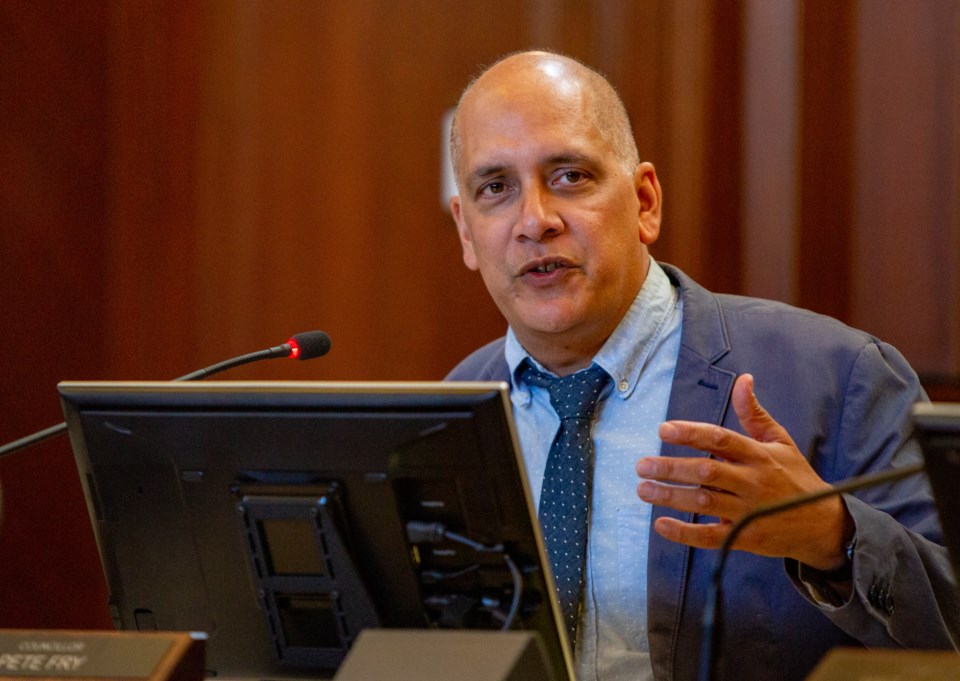Vancouver city councillor Mike Klassen said he went to a barbecue at a homeless shelter in August and discovered 70 per cent of the guests were foreign asylum seekers.
Digging further, Klassen found the newcomers had been told at Vancouver International Airport to go to the Fairview Slopes shelter.
It’s a situation that local governments say is untenable and they want Ottawa and Victoria to deal with it.
The City of Richmond reported in March 2024 that one-third of those accessing the shelter system were asylum seekers.
The trend was seen in major Ontario and Quebec cities last year when local shelters were quickly overwhelmed.
A resolution before delegates at the Union of B.C. Municipalities' convention in Vancouver said that in Toronto the total number of asylum seekers in the shelter system increased by more than 500 per cent – from 530 individuals a night in September 2021 to almost 3,000 a night in May of 2023.
B.C. civic politicians gathered at the convention are calling on the federal and provincial governments to create dedicated shelters for foreign asylum seekers who are displacing homeless people.
Not equipped to handle needs
The resolution, brought forward by Vancouver Coun. Pete Fry, said local governments have experienced a significant increase in the number of asylum seekers using emergency shelters, which are not equipped to handle their unique needs such as translation, income and resettlement services.
Fry said the situation reduces the capacity of local shelters to accommodate the growing homeless populations in their communities. And that, delegates heard, puts stresses on shelters as people can't find shelter and remain on the streets to be dealt with by first responders.
The resolution said Ottawa should pick up the cost because it maintains responsibility for immigration and refugee services. The federal government also provides funds to provincial and local governments on a cost-sharing basis for the temporary housing costs for asylum seekers.
The resolution said local governments aren’t eligible to directly receive any of the millions of dollars in federal funds because the province runs the shelter system in British Columbia.
As such, the delegates voted to call on Victoria to develop, co-ordinate and fund new dedicated temporary shelters and appropriate support services for asylum seekers to relieve the pressure on shelters servicing local homeless populations.
Homelessness, policing
As outlined in the UBCM paper, Ensuring Local Government Financial Resiliency, local governments bear wide ranging costs associated with homelessness, including community service, legal and policing costs related to homeless encampments and homelessness more broadly.
They incur costs to address public safety, such as security costs for complex needs or social housing because of onsite substance abuse.
Local governments also often need to hire new bylaw officers to address issues arising in homeless camps, and additional parks workers to clean up parks each morning where there is overnight camping.
“This resolution reflects UBCM’s advocacy for new provincial investments in shelter spaces as part of a homelessness strategy that will address a key cost driver for local governments," the resolution said. “Communities across B.C. have seen growing homeless populations amidst a lack of sufficient shelter spaces and support services. "
The resolution seeks to alleviate a new mounting pressure placed on existing emergency shelters by asylum seekers who are using the shelters as temporary housing, thus reducing the capacity of local shelters to accommodate a growing number of homeless residents.


